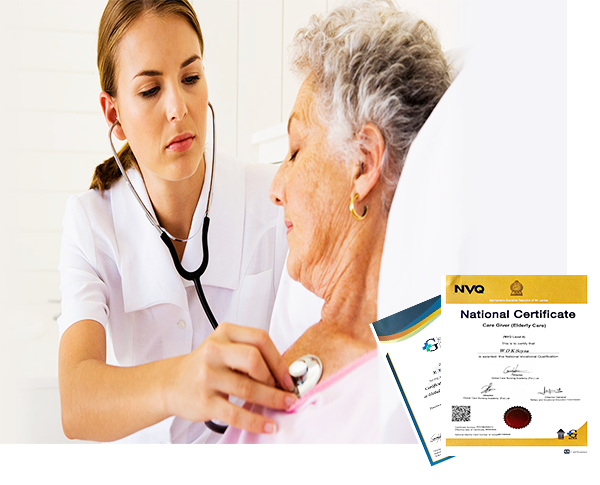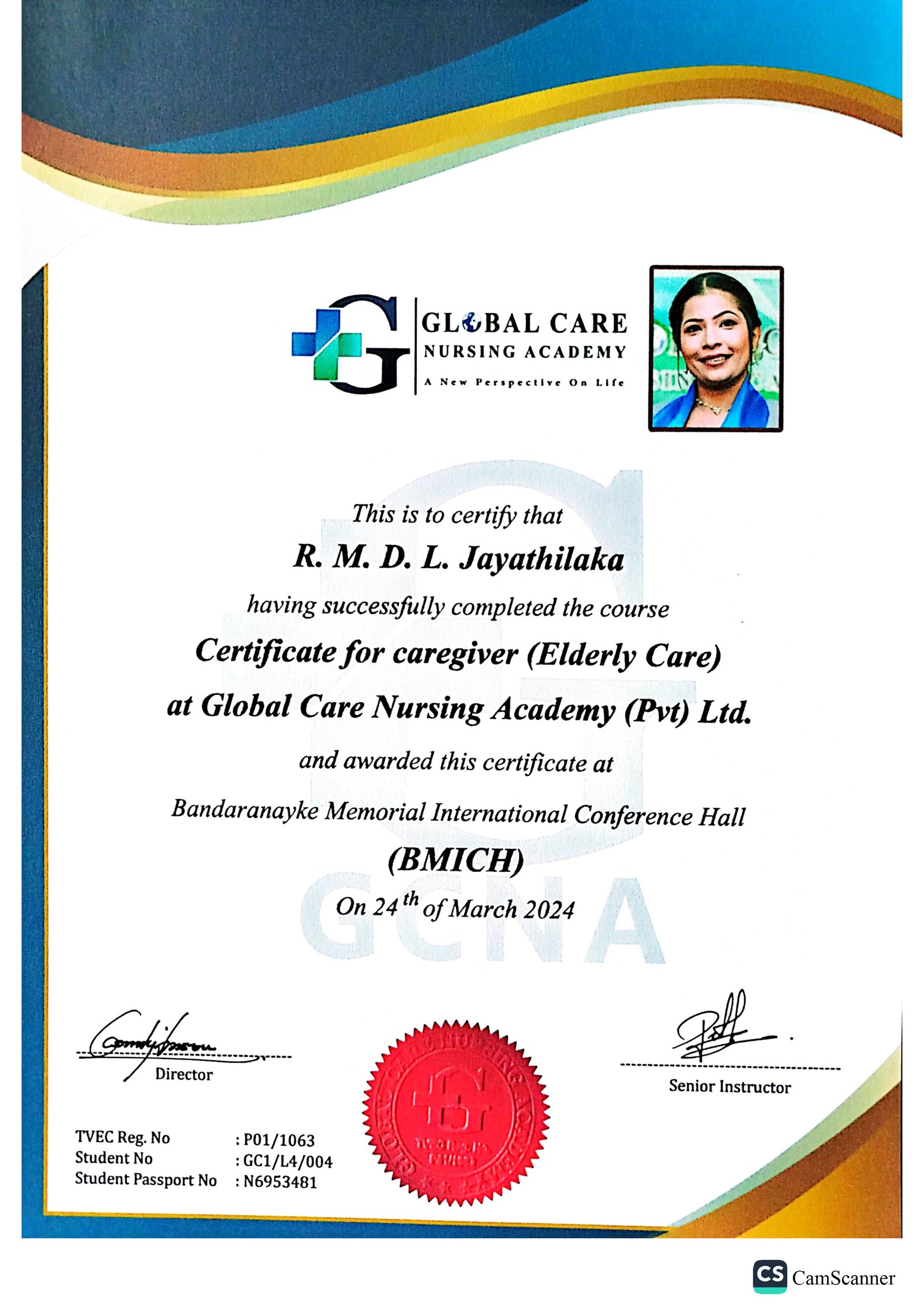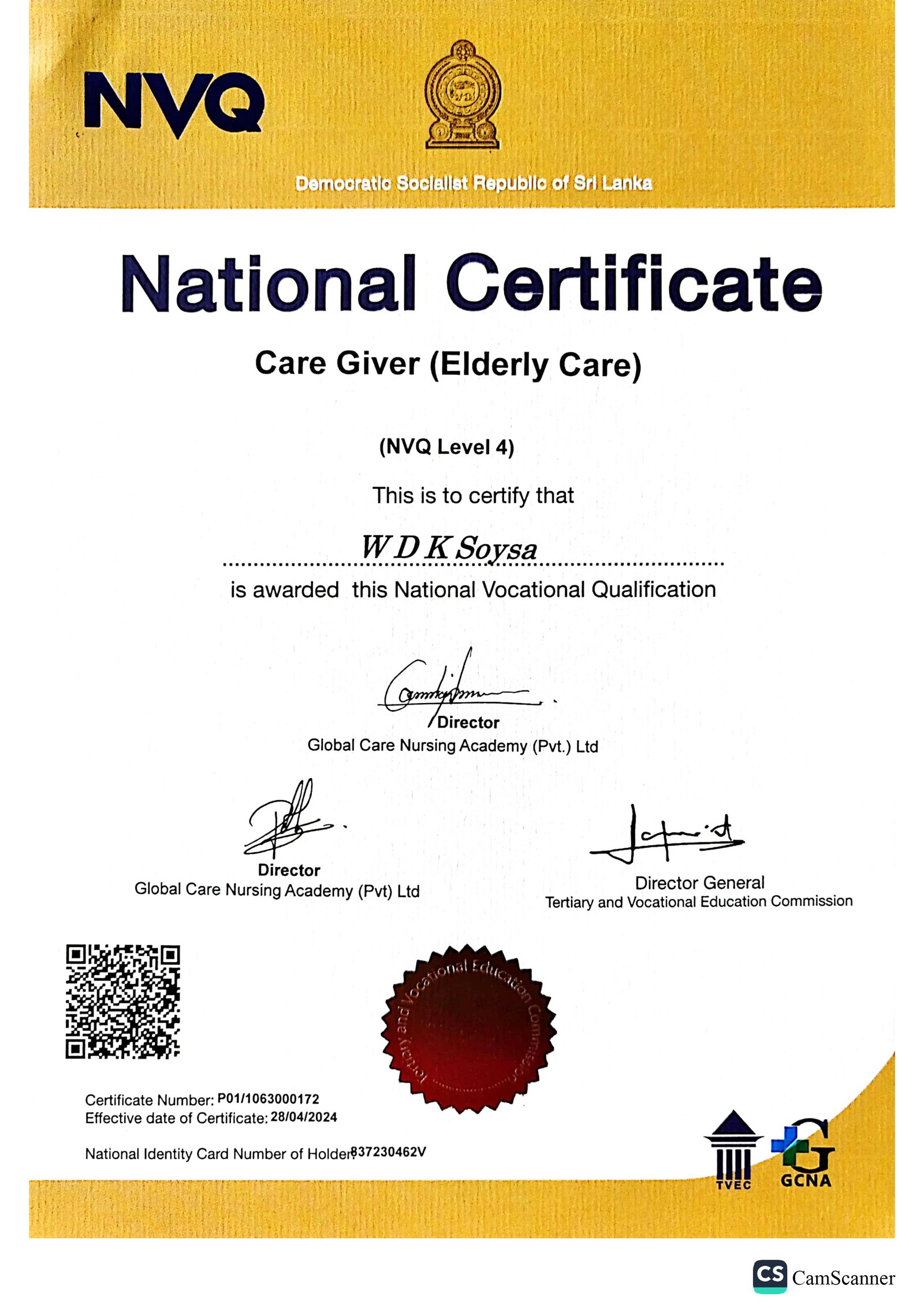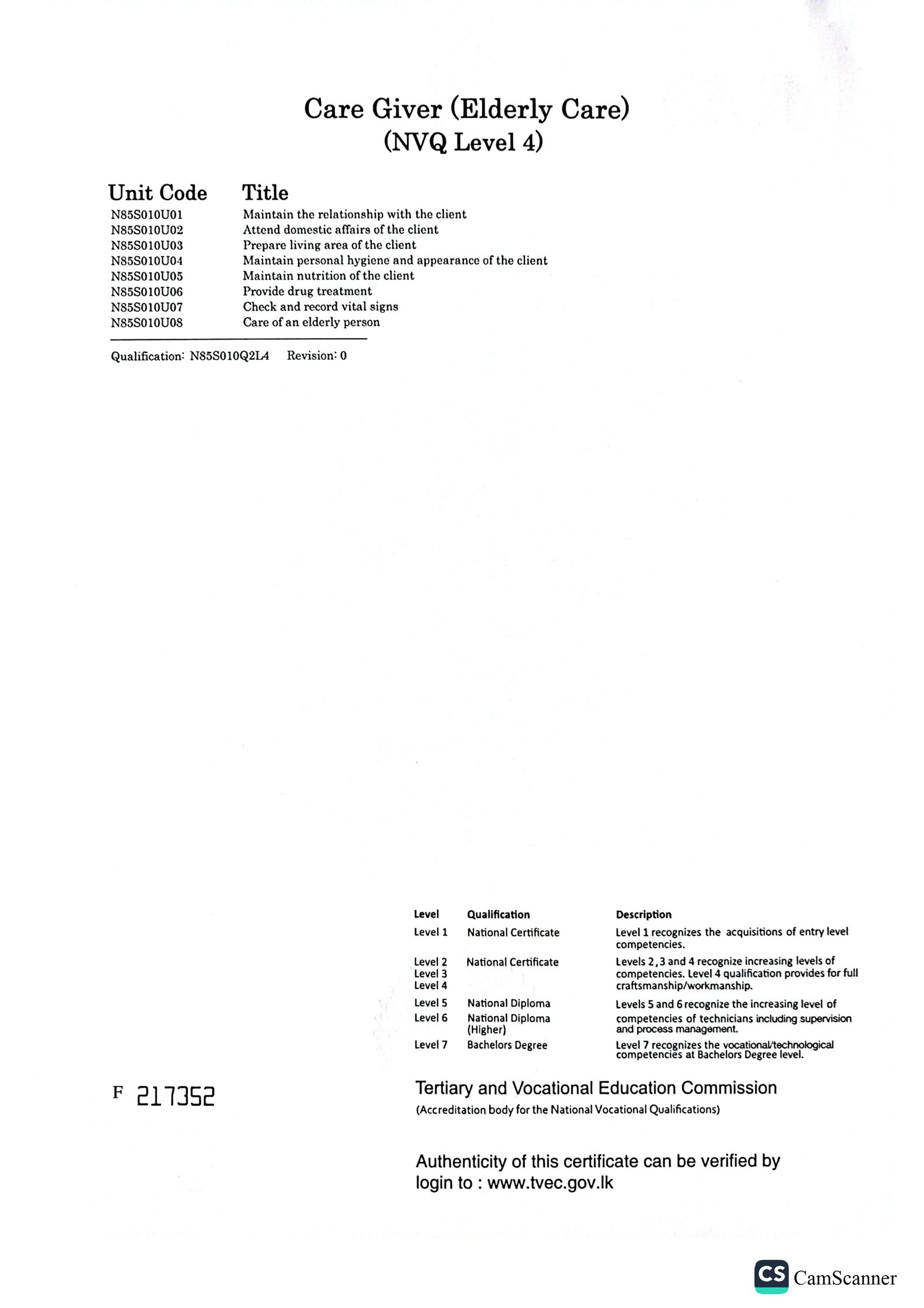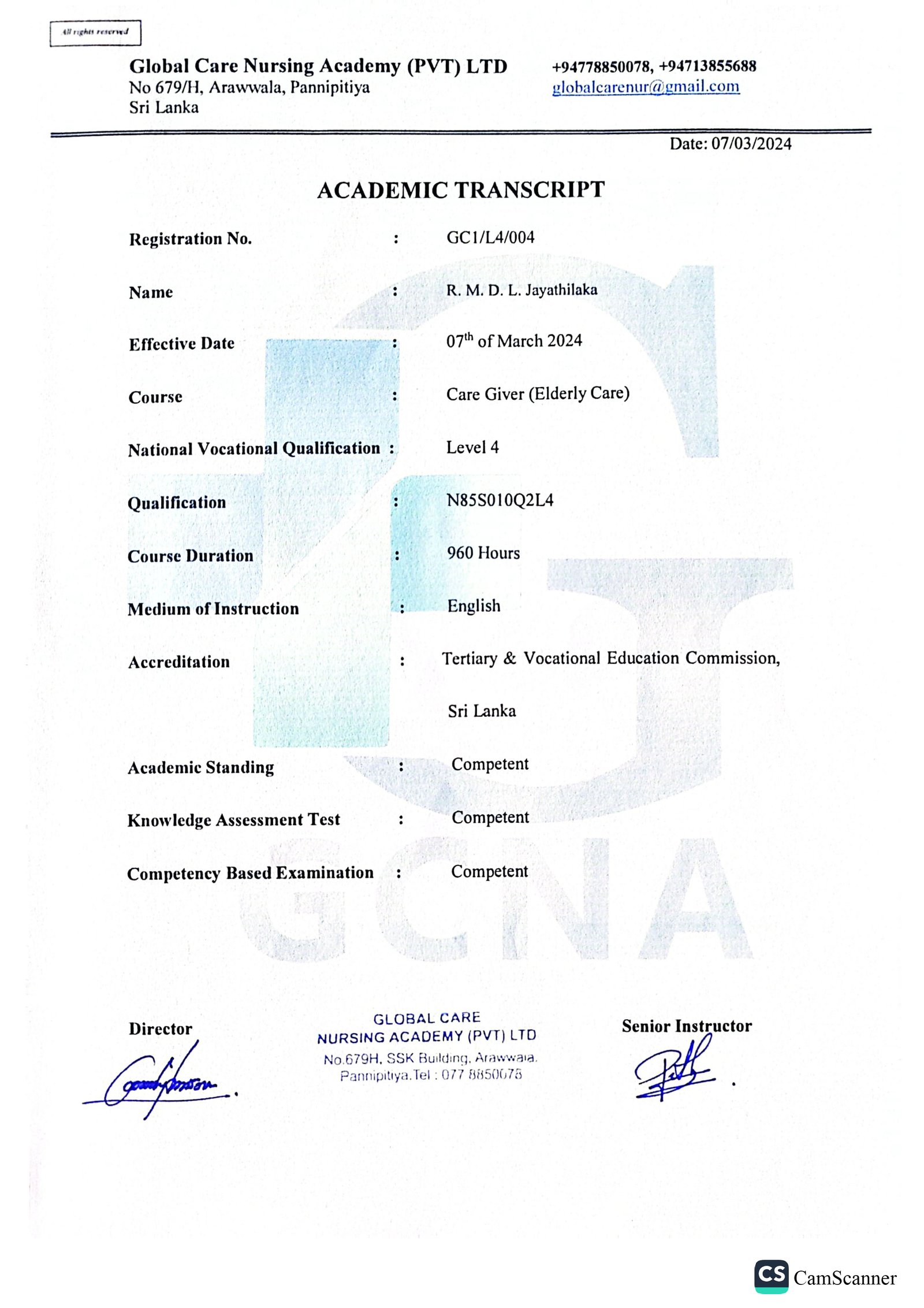By completing this qualification, candidates will gain the knowledge and skills necessary to perform a wide range of essential healthcare tasks, covered in the following core modules:
1. Maintain a positive relationship with the client
Building trust and fostering a compassionate and professional relationship with clients is at the heart of caregiving. This module emphasizes communication, empathy, and emotional support to enhance client well-being.
2. Manage the client's domestic affairs
Caregivers will learn how to efficiently handle the day-to-day household tasks of the client, such as managing laundry, preparing meals, and ensuring a clean and comfortable living environment.
3. Prepare and maintain the client’s living area
Ensuring the client’s living space is safe, clean, and organized is a critical aspect of caregiving. This module trains caregivers in setting up living spaces that promote health, safety, and comfort.
4. Ensure the client’s personal hygiene and appearance
Maintaining the personal hygiene and grooming of clients is essential to their health and dignity. This module focuses on assisting clients with bathing, dressing, grooming, and other personal care needs.
5. Maintain the client’s nutritional well-being
Proper nutrition is vital to the overall health of clients. Caregivers will learn how to plan and prepare meals that meet the dietary needs and preferences of their clients, ensuring a balanced diet and monitoring food intake for optimal health outcomes.
6. Administer medications
Caregivers will learn how to assist clients in administering medications according to prescribed treatment plans.
7. Check and record vital signs
Candidates will develop the skills to monitor and document vital signs, including temperature, blood pressure, and pulse, to ensure early detection of health issues.
8. Provide comprehensive care for elderly clients
Caregivers will be equipped to offer full-spectrum care to elderly clients, addressing both physical and emotional well-being.
